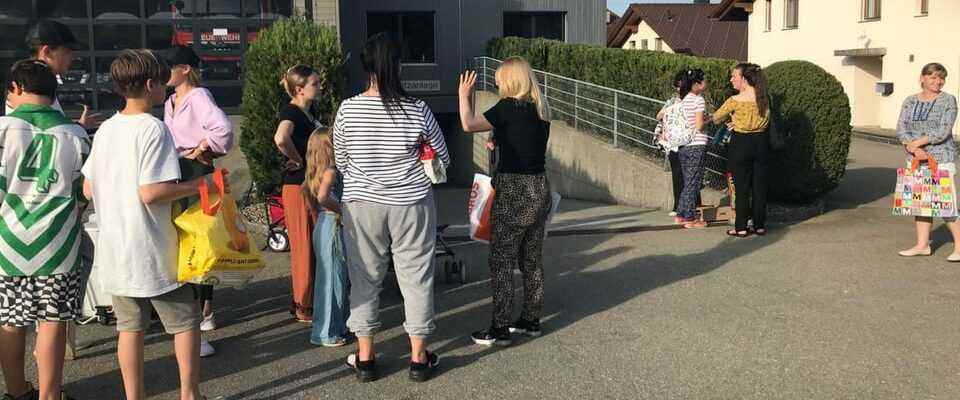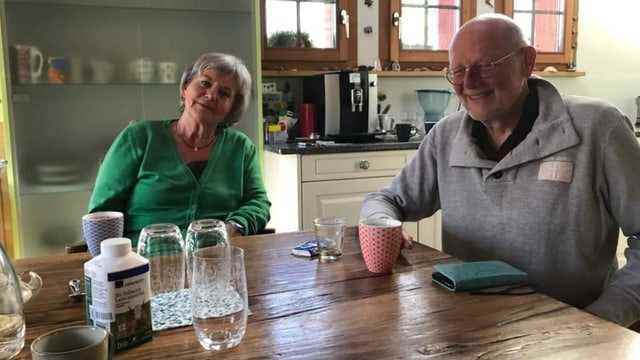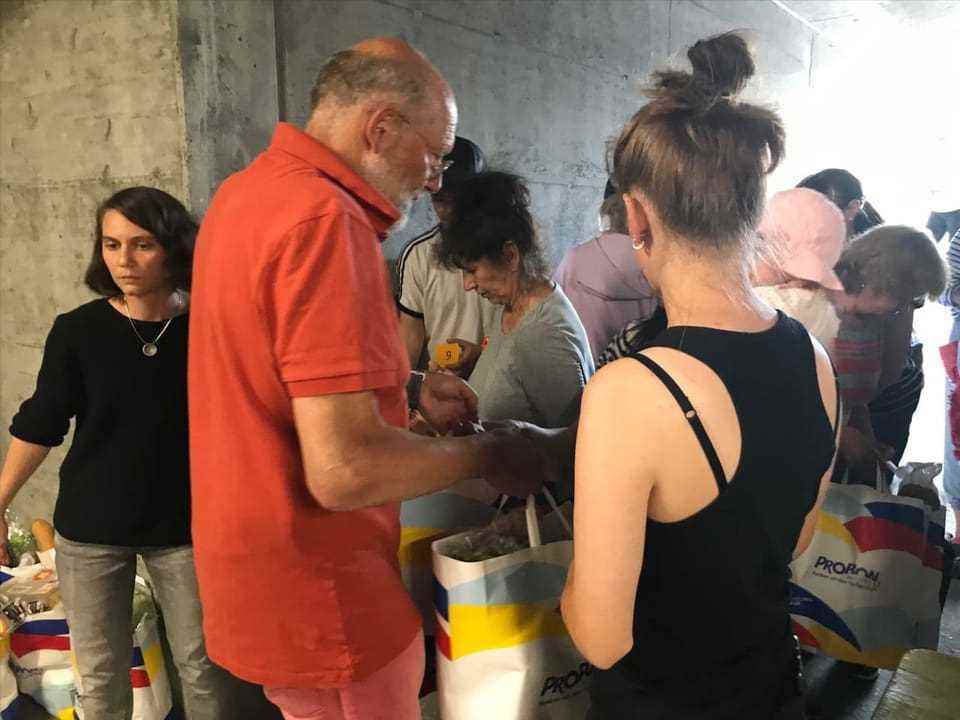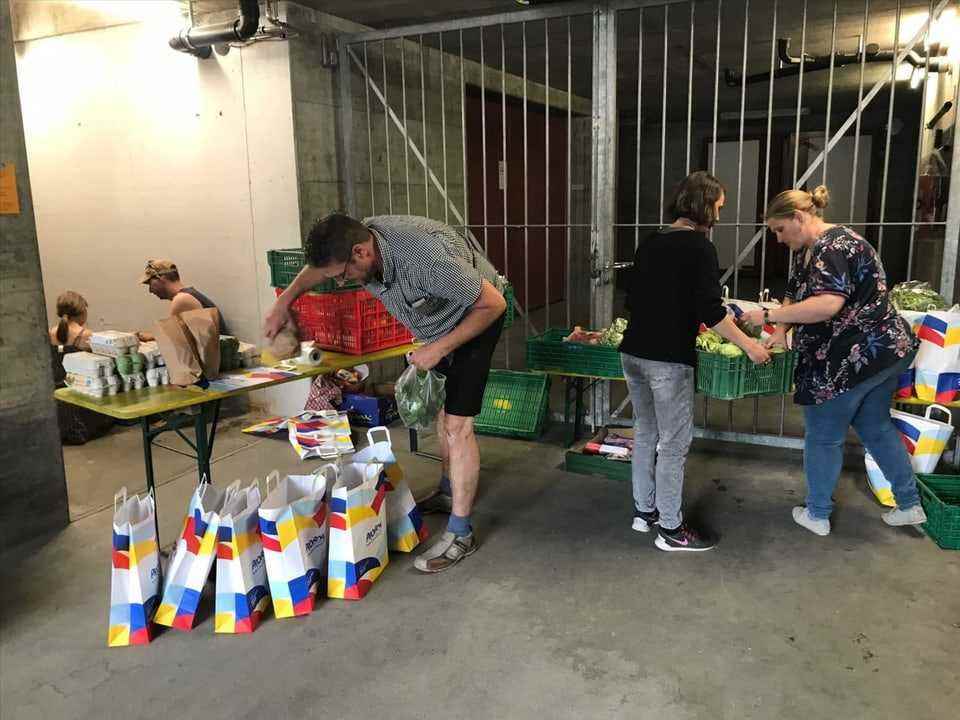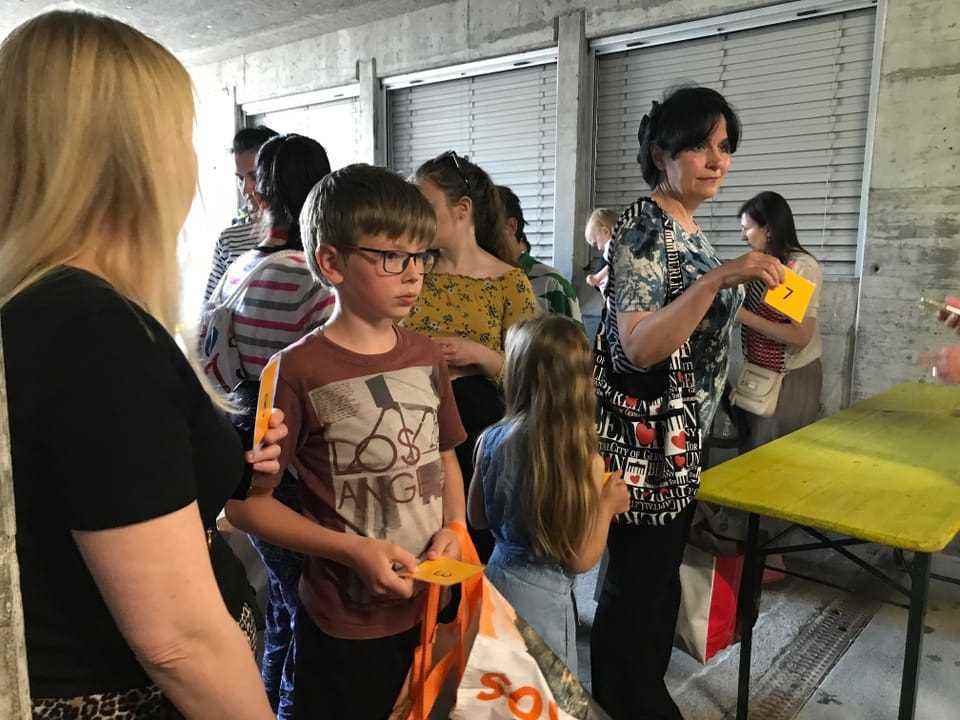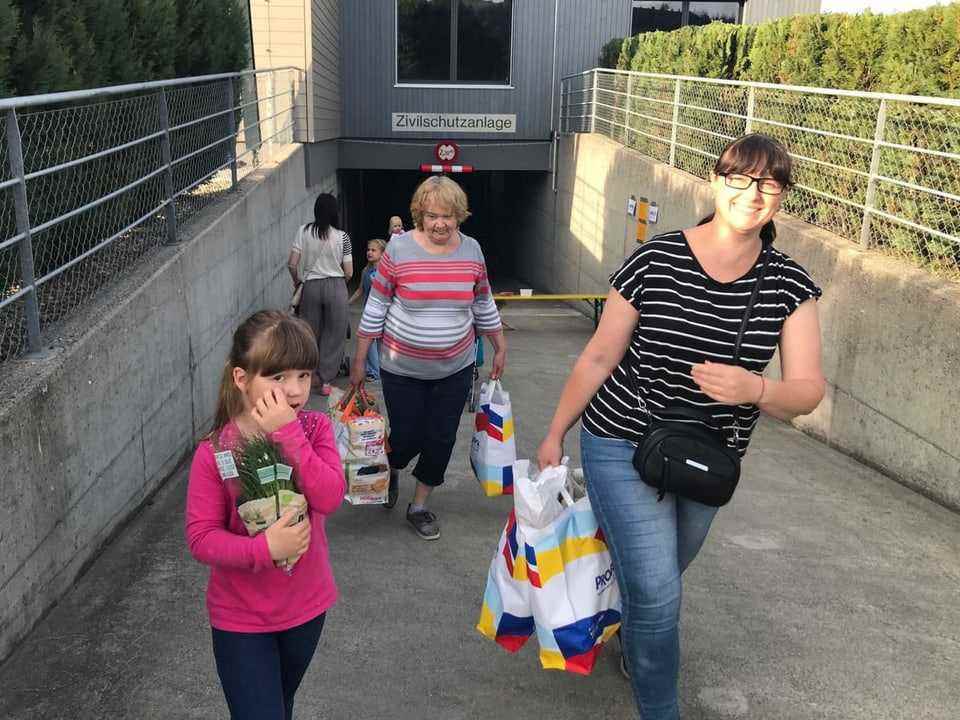contents
More than 50,000 people from the Ukraine have now fled to Switzerland – an estimated half of them are staying with host families. How can life in the host family work out? The second on-site inspection at the Wilhelmi host family in Riggisberg.
Around 40 women and children are queuing in front of the civil defense center in Riggisberg (BE). Once a week there is free groceries for Ukrainian refugees – vegetables and eggs from the surrounding farms, plus leftover items from the supermarkets – tomato sauce, pasta, bread, chocolate – collected by volunteers.
Legend:
In front of the civil protection facility in Riggisberg, the refugees are waiting for food to be distributed.
SRF / Sabine Gorge
Rolf Wilhelmi helps to pack the food in sacks in order to distribute them as fairly as possible – because there is a great rush. «Yes, it’s free. And of course they don’t have a lot of money available per month – even if they go to Aldi or buy Prix Guarantee. But this is free and really a valuable bonus for them,” says Rolf Wilhelmi, handing the next sack of groceries to a woman from the Ukraine.
“The food here is extremely expensive”
36-year-old Alona from Zaporizhia is also waiting for the groceries. At the end of March, when the bombs, rocket attacks and Russian soldiers were getting closer, the economist fled to Switzerland with her mother Natalja and her two children Dima and Viktoria. The four found shelter with Christine and Rolf Wilhelmi. Alona’s husband, father and brothers stayed behind.
Food distribution in Riggisberg
After a few minutes, all the groceries are distributed – Alona’s daughter, 6-year-old Viktoria, carefully carries a pot of chives; her mother and grandmother each have two sacks filled with groceries – that’s enough for about a week.
“We are very grateful for this support,” says Alona, adding: “The food here is extremely expensive.”
The hidden sadness
At home in the Wilhelmis garden outside of Riggisberg, 8-year-old Dima jumps on the trampoline, his sister Viktoria plays with the cat and the dog. “Animals help,” says Christine Wilhelmi. «Animals always make them laugh and help them to forget the difficulties of everyday life.» The new everyday life of a middle-class Ukrainian family who have suddenly become refugees.
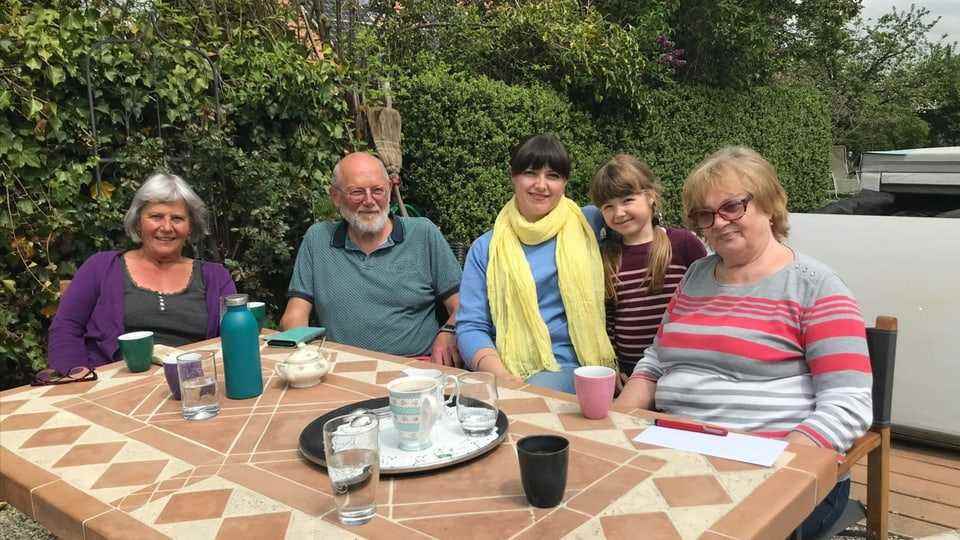
Legend:
United at the table in the garden: Christine and Rolf Wilhelmi with Alona, daughter Viktoria and mother Natalja (from left).
SRF / Sabine Gorge
The four of them have been living in the two rooms on the ground floor of Wilhelmis’ large house for six weeks. “It was a good fit from the start,” says Christine Wilhelmi. “You can tell they don’t want to be a burden – but it gets better every week.”
Often the Ukrainian women want to cook for their hosts, pancakes, blinis, give them something in return. Sometimes all adults have a glass of wine together in the garden. It’s all ok? Not quite, says Rolf Wilhelmi: “If you don’t feel like you’re being watched or if nothing is going on, then you notice a sad, withdrawn mood, a melancholy.”
There is not enough money for public transport
Daughter Viktoria goes to the local kindergarten and has already learned a little German. Her brother Dima attends the integration class – and also receives online lessons from Ukraine.
Because the Wilhelmis live a little further away, the children take the post bus to school and kindergarten. Mother and grandmother also use the postbus to go to the neighboring village for the German course. The big concern is: What if the public transport tickets for the Ukrainian refugees are no longer free from the end of the month? Christine Wilhelmi says: “We can’t just buy everyone a subscription, we don’t have enough money for that. There’s still a question mark in the air.”
So far, the Wilhelmi family has not received any money from the canton of Bern for their commitment to the Ukrainian refugees.
The open question about the future
Alona and her children together receive 360 francs – every two weeks. Her mother Natalja has to make do with 170 francs for two weeks. That is not enough.
“I absolutely have to find work, no matter what,” says Alona. She used to work for a bank in Ukraine – now she occasionally helps local farmers with the onion harvest. She has even helped out at a banquet.
Neither she nor her family know what will happen next, nor does her host family. But it is clear to everyone that the Ukrainian family will probably stay with Wilhelmis longer than they first thought.
This is not a problem for the hosts. Christine Wilhelmi says: “It was an issue just last night. They asked us, they also dealt with it. And then we said – let’s see.”
